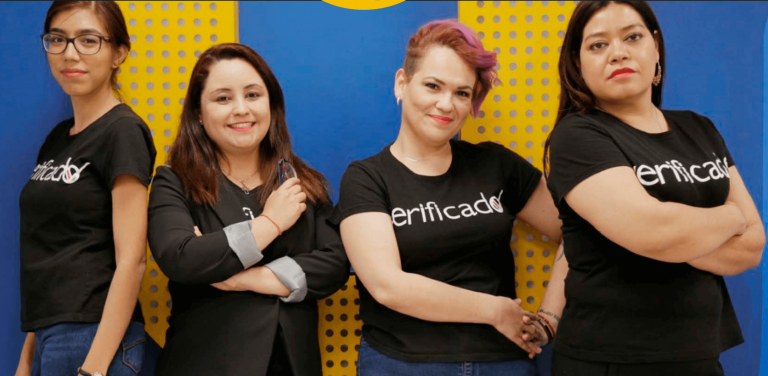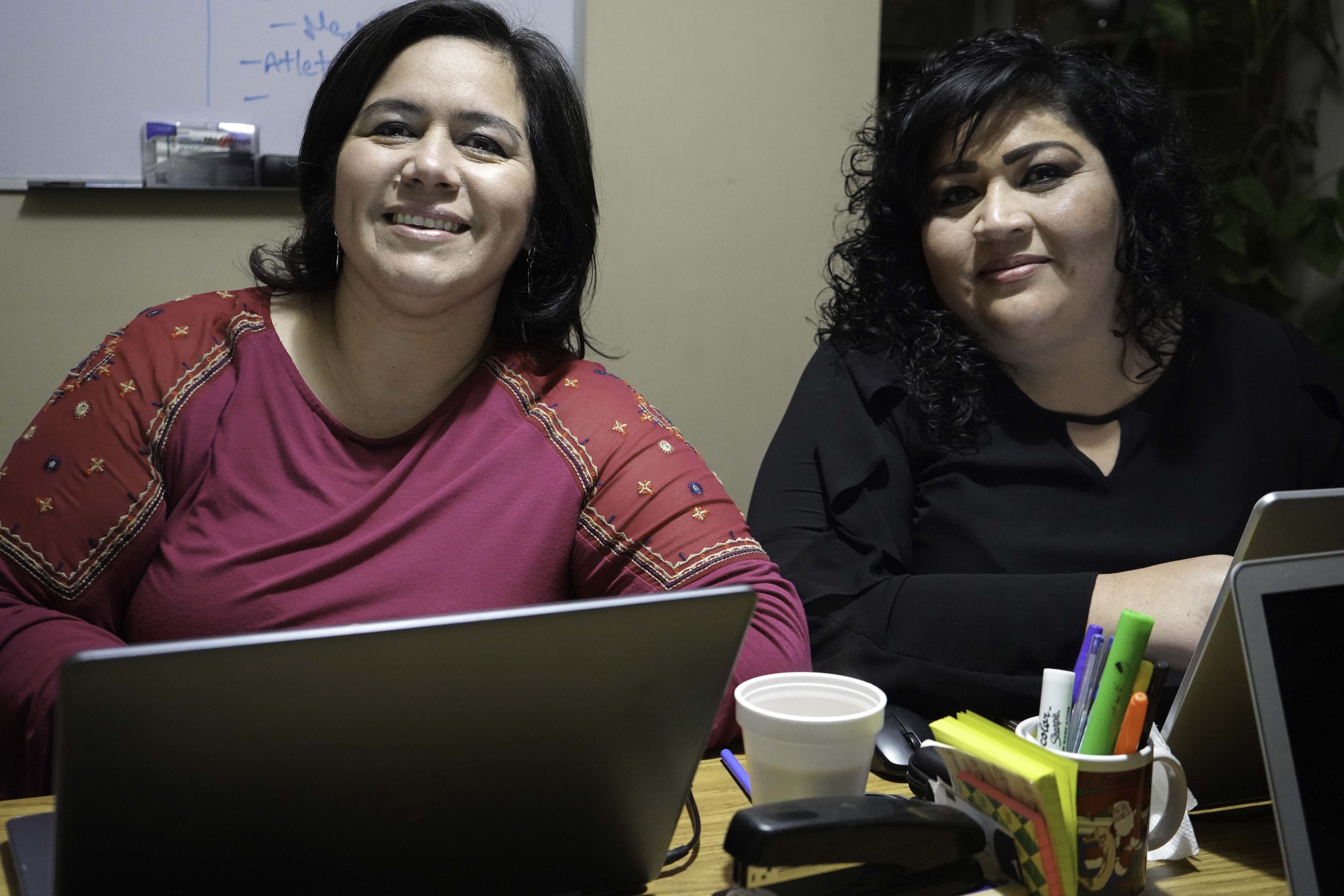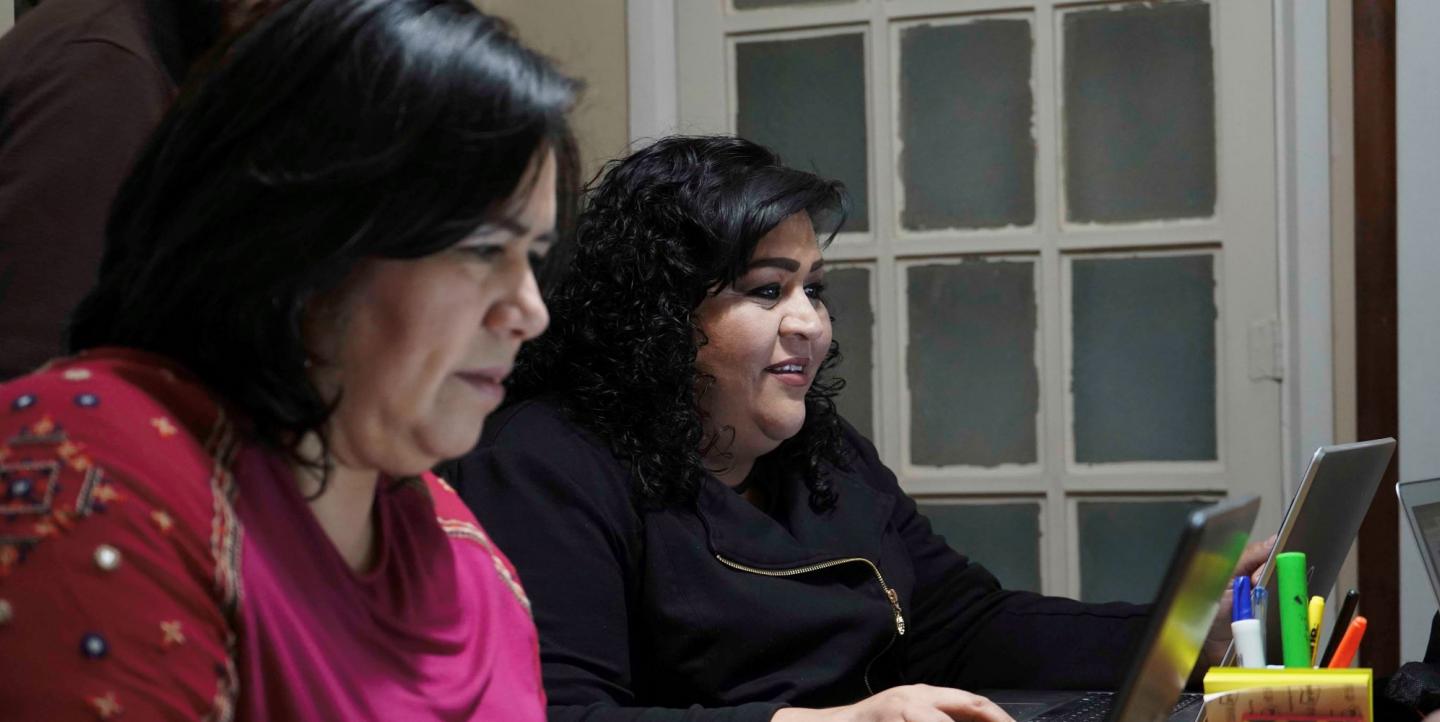Digital media startups over the past year have dealt with major economic and societal challenges due to COVID-19. Two independent news sites in Mexico, Verificado.com.mx and La Verdad de Ciudad Juárez, have not only weathered the global health crisis — they’ve managed to grow their newsrooms thanks to well-defined, flexible business models.
Both news organizations were members of the first cohort of SembraMex, a program designed to help independent media organizations along the U.S.-Mexico border become more sustainable. Organized by SembraMedia, the program is run in partnership with the International Center for Journalists and the Border Center for Journalists and Bloggers.
During the 2019 iteration of the program, Verificado.com.mx and La Verdad experimented with different strategies to diversify their revenue sources and improve sustainability, something web traffic and digital advertising alone can’t accomplish.
Here are some key lessons learned from the two news sites’ efforts over the past year to not only stay afloat, but grow their operations.
Develop diverse, adaptable business models
Based in Monterrey, Mexico, Verificado.com.mx specializes in fact-checking with a focus on gender and human rights. For the newsroom’s fact-checking experts, creating a well-defined, adaptable business model not exclusively tied to web traffic was key.
Team members drew on their expertise to cultivate potential clients for whom they could offer consulting and fact-checking courses. “In that regard, 2020 was a very good year for us, given we now have seven new clients,” said founder Daniela Mendoza.

Credit: Punto U, Universidad Autónoma de Nuevo León
Their clients include civil society organizations located across the country, for instance in Nuevo León and Jalisco. Verificado.com.mx reporters offered fact-checking courses, as well as classes on reporting with a gender perspective and combating hate speech. They also worked with national and international clients, such as the U.S.-based It Gets Better, on LGBTQ-related issues.
Launch strategic partnerships
Verificado.com.mx initiated partnerships with other media organizations, which provided the newsroom with more resources and allowed them to increase their content output. “Joining fact-checking coalitions such as #LatamChequea or the Coronavirus Fact Checking Alliance gave us more grant funding, while also allowing us to share our professional fact-checking expertise internationally,” said Mendoza.
[Read more: This checklist promotes better engagement and solutions reporting]
Verificado.com.mx has diversified revenue through other grants as well, including support from the Google News Initiative. The team also helps other news organizations in the region set up their own fact-checking teams. This is another revenue source for the newsroom.
The multi-faceted approach allows Verificado.com.mx to combat misinformation in many more ways than by just publishing articles. At the same time, they’re able to improve their financial stability, establish the organization’s brand on a regional level, and promote the unique skills their team has to offer.
Look for alternative sources of revenue
“La Verdad did not escape the impacts of COVID-19,” said Rocío Gallegos, co-founder of La Verdad de Ciudad Juárez, one of the most important investigative journalism outlets along the U.S.- Mexico border. “The closure of the border [due to the pandemic] was a very hard blow, not only to our coverage and finances, but for our entire community,” she said.
The La Verdad team hoped to launch a content agency in 2020, for which they laid the groundwork during their involvement in the 2019 SembraMex program. Content agencies can be a strategic way for independent media startups to diversify their revenue sources, as the media outlet’s reporting team can offer their journalism expertise as a service to clients and partners outside of the news industry.

At the end of 2019, La Verdad relied on two clients for funding. In 2020, however, this support fell through, forcing La Verdad into financial difficulties. The newsroom also experienced personal loss, including the death of one of its contributing reporters.
In the face of the global crisis, the team had to look for alternative sources of funding. “We started to look at new funding options. We had to have an open mind when it came to thinking about new ways to generate revenue because we didn’t have any other choice,” said Gallegos.
La Verdad received emergency funding from donors such as the Google News Initiative and the Facebook Journalism Project, which allowed the outlet to stay afloat. “Applying for [this] funding allowed us to keep operating and serving our community in the midst of everything, which was really satisfying,” Gallegos said.
Don’t be afraid to ask for help
Given the financial hardship, La Verdad launched a donation program through which they asked for support from their readers. “The donations we receive don’t amount to a whole lot of money, but they do cover some expenses,” said Gallegos.
The donation program also demonstrated that many of the site’s readers are interested in interacting with La Verdad. This helped the team think of other ways to engage their audience. They went on to start a newsletter, refine their audience work and organize virtual events.
[Read more: These five reporting initiatives in Latin America are changing their communities]
Recognizing readers’ sustained interest in their reporting during the pandemic, while also committing themselves to strengthening the site’s brand has allowed La Verdad to navigate the health crisis effectively. The revenue generated, for instance, has allowed the team to grow from two to six permanent staff members. “Depending on the revenue we bring in, the team will continue to grow, which is good news in spite of everything,” said Gallegos.
La Verdad’s next project will focus on commercial advertising as a funding source, though they will keep restrictions on government advertising. “We realized that we have to start accepting advertising from private companies, but we can do so while still upholding our ethical standards,” said Gallegos. “It fills us with pride and excitement to know that, despite everything, we were able to forge ahead. We have kept our news coverage going, despite everything that has happened and is still going on,” she said.
This article was originally published on the SembraMedia blog and was republished on IJNet with permission. It was translated to English by journalist Natalie Van Hoozer.
Feature image courtesy of SembraMedia.
Sebastián Auyanet is the SembraMedia ambassador for Uruguay. He works as a consultant for the SembraMex and Velocidad programs and is also an associate producer with NowThis News. He has a Master’s degree in social journalism from the Craig Newmark School of Journalism (CUNY) in New York.

